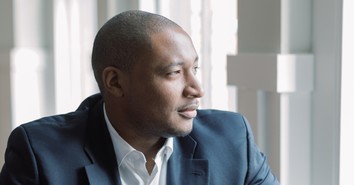How Hillary Clinton’s Faith Affects Her Policies

November 10, 2007
While Hillary Clinton is not shy about bringing her faith into house of worships for the purpose of rallying voters, she is also—surprisingly to both conservative Christians and secular liberals—not shy about bringing it into the public square.
A lifelong Methodist, Mrs. Clinton has openly professed the basic fundamentals of the Christian faith, from the resurrection to the atoning death of Christ to the Trinity. She prays, reads the Bible, gets counsel from ministers, raised a Christian daughter, goes to church, and frequently attends and has even led Bible studies. Though she and her husband both have brazenly transformed church services into mini-political conventions, not even the most cynical right-winger would insist that Hillary and Bill were playing politics when they eagerly attended Sunday school as eight-year olds.
Hillary is a very liberal Christian. The greatest paradox of Mrs. Clinton is the way her Christian faith has reinforced her commitment to human rights when it comes to civil rights and children’s rights and even gay rights, but not the rights of unborn children. Her unmatched stridency on the abortion issue, where she refuses to draw a line even on partial-birth abortion, prompts many conservative Christians to question her not simply as an elected official but as a professing Christian.
It will surprise both sides to hear that Hillary has criticized those who misinterpret the separation of church and state. She says that “freedom of religion” should not mean “freedom from religion.” Like her husband, she has spoken in favor of prayer in public schools and cites Scripture in arguing that marriage should be restricted to a man and woman (though she seems increasingly ambivalent on this subject).
Generally, however, Hillary Clinton is a classic Religious Left politician. An early, largely unnoticed window into her spiritual thinking was a telling April 1996 keynote speech to the annual United Methodist General Conference. As was typical of Mrs. Clinton’s talks on religion, her speech made no reference to abortion, and neither did the introduction by Bishop Richard B. Wilke, for whom she had done legal work back in Arkansas. Yet again, there was no mention of unborn children in a speech focused on how children need justice, love, and compassion.
Mrs. Clinton began by talking about the church of her youth, about her mother and Sunday School, about Vacation Bible School, and even about some of her daughter Chelsea’s church experiences. All of that laid the groundwork for her theme, which secular liberals would condemn if Hillary were not one of their own: Christians, insisted Hillary, must “put into action what we believe” in all spheres of life, including the public sphere.
The first lady said she was “heartened” to learn that the Methodist Council of Bishops had renewed its call “to make the welfare of children a top priority.” “Children need us,” said Mrs. Clinton. She cited Jesus as the chief motivation in her government healthcare initiative: “We know so well what Jesus said to his disciples in Mark, holding a small child in his arms, that whoever welcomes one such child in my name, welcomes me, and whoever welcomes me, welcomes not me, but the one who sends me…. Take the image we have of Jesus—I can remember so clearly walking up the stairs so many times to my Sunday School class, and seeing that picture that is in so many Methodist churches, of Jesus as the Shepherd. Taking that face and transposing it onto the face of every child we see, then we would ask ourselves, ‘Would I turn that child away from the health care that child needs?’”
Needless to say, there was no editorial in the New York Times complaining about the first lady “shoving” her religious views upon the public, nor outrage about Mrs. Clinton transposing the face of Jesus onto non-Christians—onto Jews and Muslims.
Aside from the maddening hypocrisy by the press, this statement, on its own terms, was a striking illustration of the degree to which Mrs. Clinton’s personal Christian worldview shapes one of her most passionate and defining policy concerns.
Equally significant, she cited official church teaching as an influence in her actions: “For me, the Social Principles of the Methodist Church have been as much a description of our history as a prod for my future actions.” The Methodist Church and its principles, said the future senator, provided direction when it came to families, schools, and in “policies” to be developed for “each” child. “We continue in this church to answer John Wesley’s call to provide for the educational health and spiritual needs of children.” She listed areas in which she was “proud” that the church “had been a leader,” citing the quality of education, the expansion of “comprehensive” health care, curbing smoking among young people, promoting “parental responsibility,” and strengthening marriages.
It was clear from the speech that Hillary Clinton has a personal ministry to the children of the world. Depending upon one’s view of her politics, that thought is either heartening or alarming. If you are one of Mrs. Clinton’s secular liberal supporters, this should astonish you—or, at least it would if George W. Bush made similar statements—and you can once again erect another double standard.
Regardless of one’s reaction, these are telling insights into the heart and soul of Hillary Clinton. Hillary’s faith is a factor that should not be dismissed.
Paul Kengor, author of spiritual biographies of Ronald Reagan and George W. Bush, has just published God and Hillary Clinton (HarperCollins, 2007). He is a professor of political science and executive director of the Center for Vision & Values at Grove City College.
Originally published November 10, 2007.





